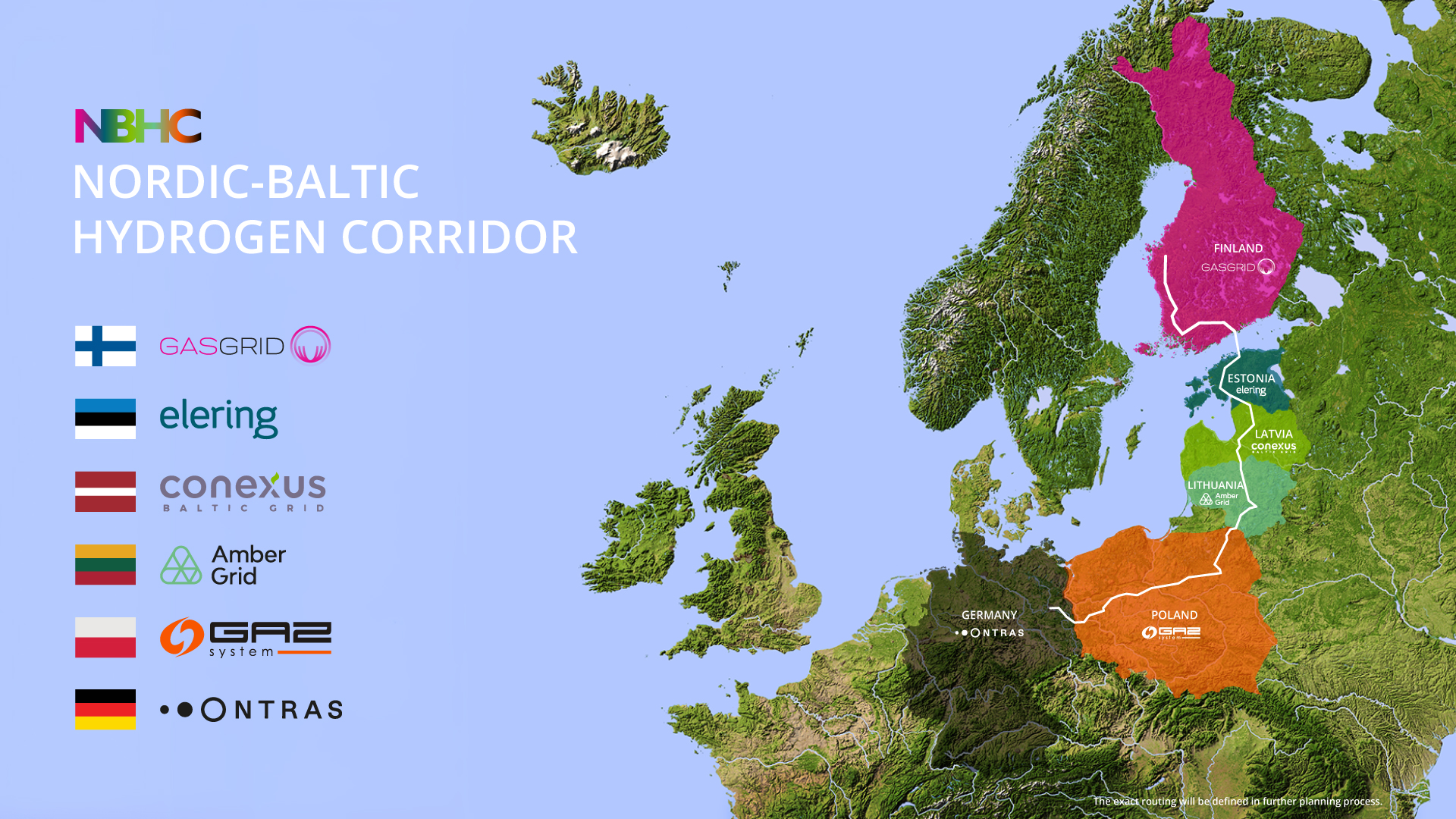Press releases
05.02.2025
European Commission Allocates €6.8 Million for Nordic Baltic Hydrogen Corridor
The European Commission has announced to allocate co-financing from the Connecting Europe Facility (CEF) to cross-border energy infrastructure projects under the Trans-European Networks for Energy (TEN-E) framework and Nordic Baltic Hydrogen Corridor (NBHC) stands out with a €6.8 million grant to support its feasibility study phase.

This decision will significantly enhance establishing the hydrogen infrastructure that will connect Finland, Estonia, Latvia, Lithuania, Poland, and Germany, forming a vital backbone for Europe’s green energy future. The competition for infrastructure funding in the EU is fierce, so this decision is a great testament to the quality and necessity of the NBHC project and showcase its potential to contribute to the EU's energy self-sufficiency targets and support the clean energy transition.
The €6.8 million CEF grant will help the NBHC project to execute feasibility phase studies across the respective countries. These studies will focus on various crucial aspects including pipeline routing, compressor stations planning, financial and economic analysis, environmental and safety permitting issues as well as investigations on an implementation timeline. These studies are expected to run until the end of 2026.
“We welcome the European Commission’s decision to award us this substantial amount for the further development of the Nordic-Baltic Hydrogen Corridor. It is a testament to its importance for the future of a clean, resilient and secure energy supply for the European member states as well as the work our dedicated teams have put in so far. The Nordic-Baltic Hydrogen Corridor is a truly European endeavour that we are thilled to be a part of”, commentedGunar Schmidt, ONTRAS Managing Director Operations and Safety.
The NBHC is a joint project of six European TSOs: Finland’s Gasgrid vetyverkot Oy, Estonia’s Elering, Latvia’s Conexus Baltic Grid, Lithuania’s Amber Grid, Poland’s GAZ-SYSTEM, as well as Germany’s ONTRAS. According to the participants of the project, this decision reinforces the Baltic region’s competitiveness in the hydrogen sector and confirms the project partners’ commitment to both national and international hydrogen infrastructure development.
The NBHC project’s success in securing this vital funding demonstrates the growing importance of cross-border collaborations in Europe’s transition to a clean and sustainable energy future. As the feasibility phase progresses, the project is set to become a cornerstone of Europe’s energy landscape, fostering a green economy and supporting the EU’s goal of achieving net-zero emissions by 2050.
The NBHC is a pioneering initiative designed to integrate renewable hydrogen across six EU member states. By linking production centers in the Nordic and Baltic regions with major demand hubs, the project will contribute significantly to decarbonizing energy systems, including hard-to-abate industrial sectors, and reduce carbon emissions by up to 37 million tons of CO2 equivalent annually by 2050.